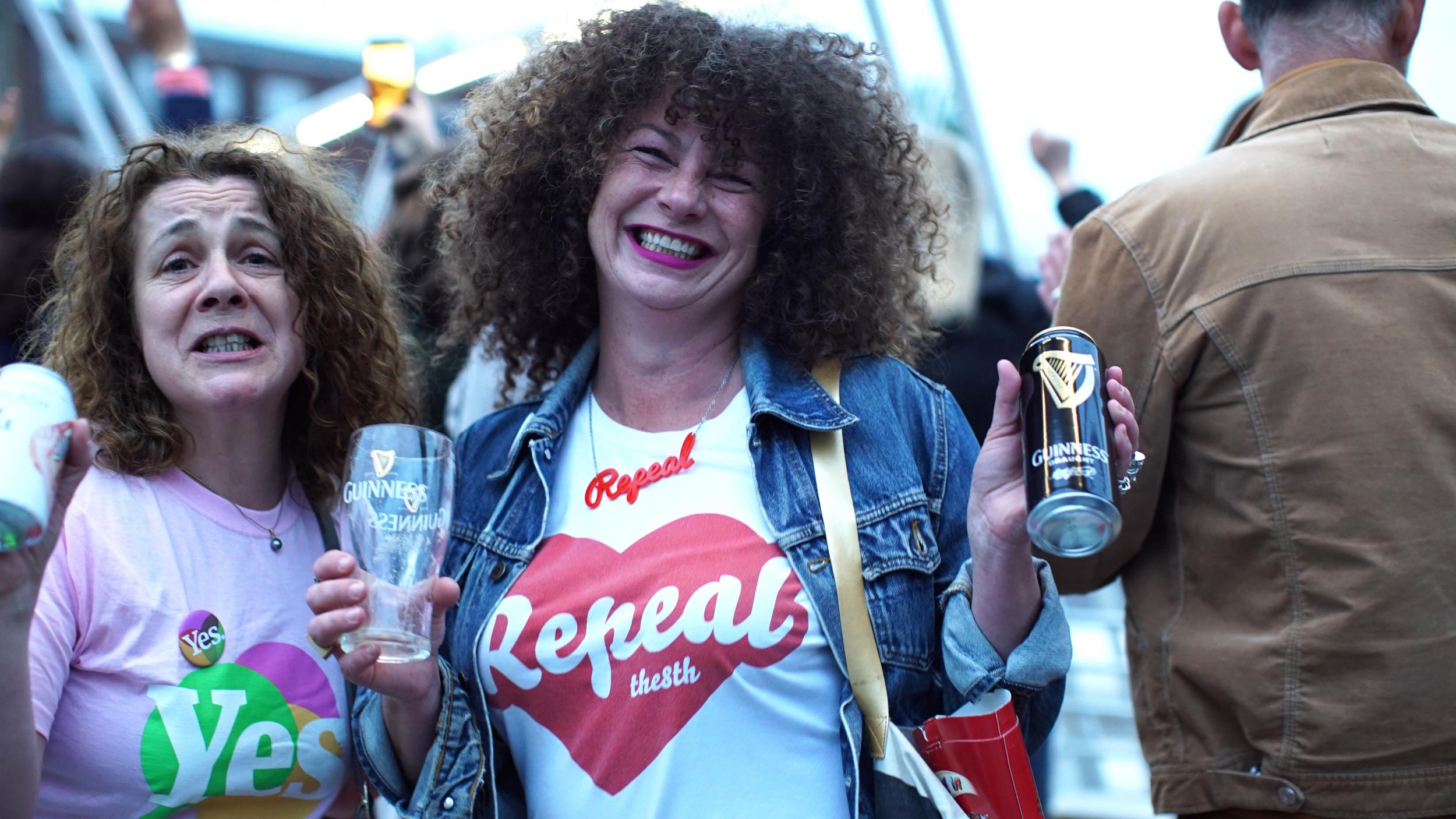Sometimes, history seems to be moving in the right direction
Friday’s vote to respect the human rights of women in the Republic of Ireland will put pressure on the (suspended) government of Northern Ireland to join the advance of progress

Your support helps us to tell the story
From reproductive rights to climate change to Big Tech, The Independent is on the ground when the story is developing. Whether it's investigating the financials of Elon Musk's pro-Trump PAC or producing our latest documentary, 'The A Word', which shines a light on the American women fighting for reproductive rights, we know how important it is to parse out the facts from the messaging.
At such a critical moment in US history, we need reporters on the ground. Your donation allows us to keep sending journalists to speak to both sides of the story.
The Independent is trusted by Americans across the entire political spectrum. And unlike many other quality news outlets, we choose not to lock Americans out of our reporting and analysis with paywalls. We believe quality journalism should be available to everyone, paid for by those who can afford it.
Your support makes all the difference.Sometimes it seems that the Whig theory of history, of the uncertain but irresistible advance of human progress, may be true after all. The arc, from a 66.9 per cent vote to pass the eighth amendment of the Irish constitution in a 1983 referendum to the 66.4 per cent vote to repeal it, the result of which was announced today, in just one generation describes a culture transformed.
The way most Irish people thought about the question of abortion 35 years ago was dominated by not just the Roman Catholic church, but by religion as a symbol of national identity. There were then, as there are now, many who strongly believe that life begins at conception. Those beliefs continue to be respected: what has changed is a society that no longer insists that they should be imposed by the state on those who either disagree or hold other values higher.
To put the case in its crudest form, it had become impossible for the Irish state to prevent its citizens travelling abroad – to Great Britain, mainly – to obtain control over their own bodies. But the margin of Friday’s victory suggests a deeper change of attitudes than a simple bowing to the inevitable.
It may seem starry-eyed to see the vote yesterday as part of a sequence. It is part of a sequence in Ireland, as Guen Murroni writes today. Contraception was legalised shortly after the 1983 referendum reinforced the law banning abortion; divorce was legalised in the 1990s; and the equal marriage referendum was passed three years ago.
But it is also possible to see it as part of a global advance for equal rights and pluralism, despite the populist backlash against progress – as The Independent sees it – in Britain and America two years ago. Leave Brexit and the election of Donald Trump to one side – sidesteps on the path to progress, if you like – and it is possible to discern a gradual, if uneven, advance towards a richer understanding of universal human rights.
As we argued yesterday, reproductive rights are human rights.
Now, attention should turn to the doubly anomalous state of the law in Northern Ireland, out of line with both the rest of the UK and the republic. The ratchet of human rights advances slowly, but it usually advances. Theresa May’s alliance with the Democratic Unionist Party seemed like a step backwards, but in fact it was accompanied last year by the Treasury’s agreement to pay for women to travel from Northern Ireland to Great Britain for abortions.
Progress is never inevitable, but it seems likely that the Whig theory will eventually apply throughout the British isles. World events often seem dominated by a litany of injustice and degradation. But sometimes, as today, history seems to be moving in the right direction.
Join our commenting forum
Join thought-provoking conversations, follow other Independent readers and see their replies
Comments